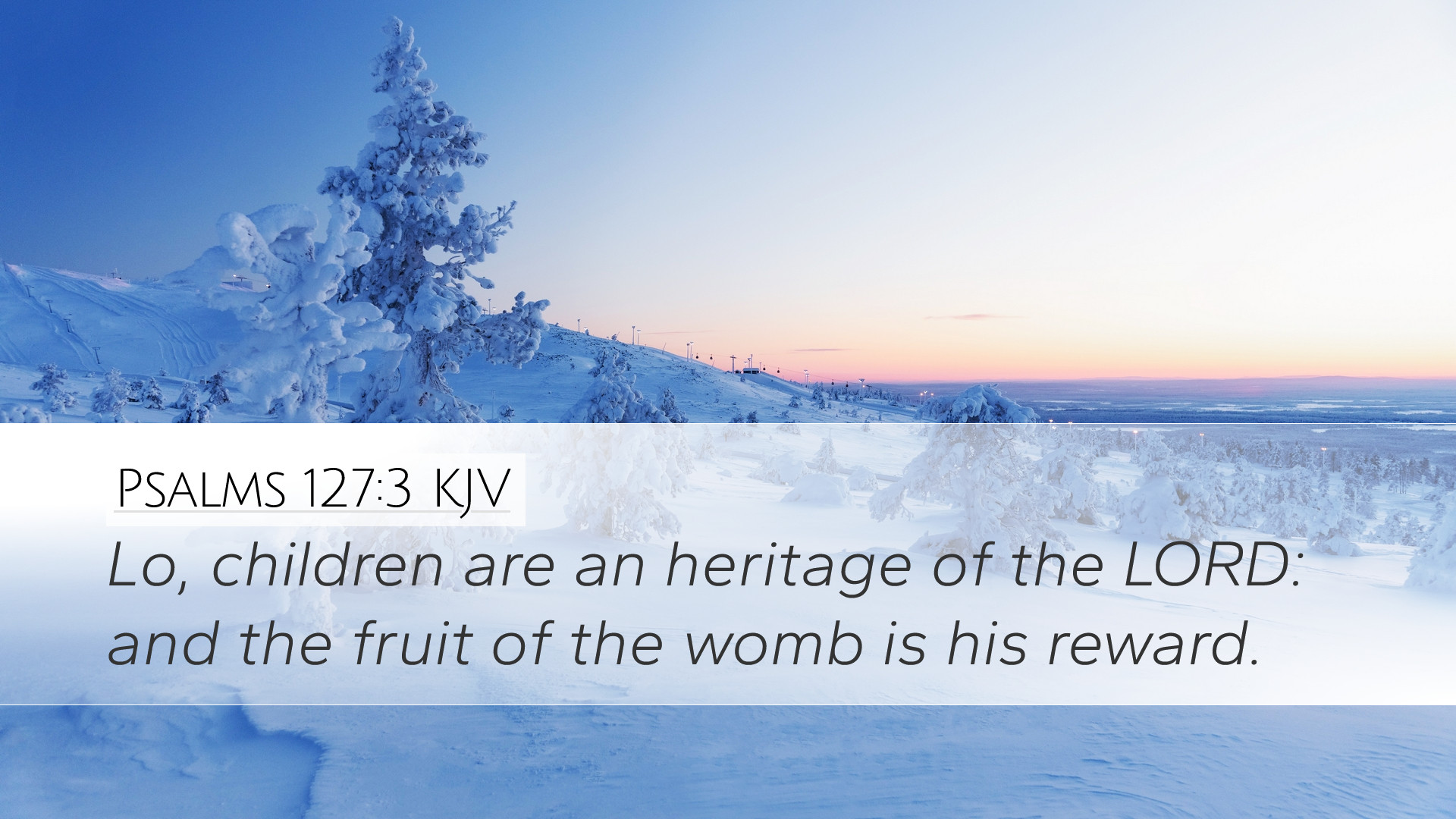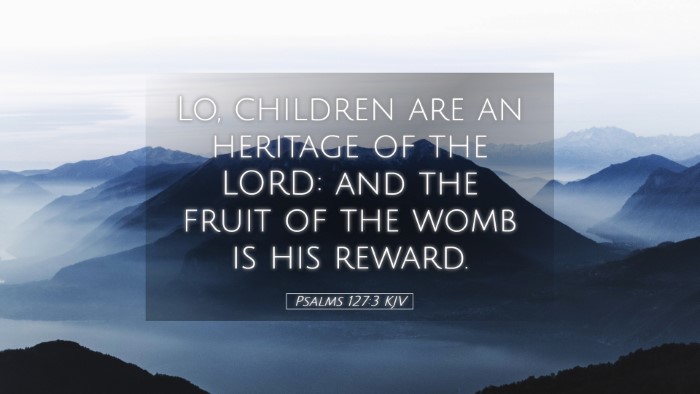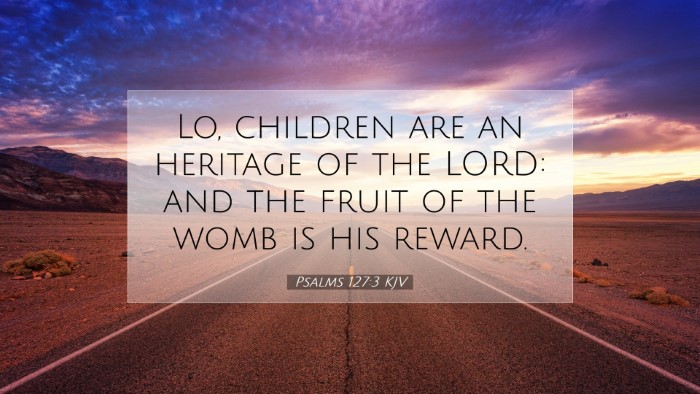Psalms 127:3 - A Commentary
"Lo, children are a heritage of the Lord: and the fruit of the womb is his reward."
Introduction
Psalms 127:3 is a profound verse that speaks to the nature of family, inheritance, and divine blessing. Its implications extend beyond mere parental joy into the realms of theology, ethics, and social structures. Scholars and theologians have long deliberated on its meaning, and this commentary seeks to provide insights from esteemed public domain commentaries.
Contextual Analysis
This verse resides within a Psalm attributed to Solomon, focusing on the themes of divine providence and the vanity of human effort without God's blessing. The preceding and following verses expand on the futility of labor without assurance from God and the joy derived from family life.
Matthew Henry emphasizes the context of the preceding verses, noting that labor, whether in house-building or watchfulness over a city, is futile if not led by God’s hand. He discusses how blessings are often seen in the frame of family and children, as they represent continuity and a legacy.
Theological Reflections
Psalm 127:3 highlights several theological themes:
- Divine Ownership: Children are described as a 'heritage' from the Lord, indicating that they are not merely possessions of parents but gifts entrusted to them.
- Value of Life: The verse venerates the life that comes from the womb, displaying how children are regarded as rewards and blessings rather than burdens.
- Societal Impact: Children serve as a foundation for society; thus, their significance extends beyond the family unit into the broader community structure.
Insights from Commentators
The ideas presented by various commentators each contribute layers of understanding to the text.
Matthew Henry
Henry remarks that this verse teaches the value of children in the Lord's sight—them being a heritage indicates a deep, spiritual blessing. He posits that God has intended for children to evoke joy, as they are instrumental in continuing one's legacy.
Henry also notes that parental responsibility is paramount. This heritage calls for nurturing and proper upbringing to ensure that children fulfill their divine purpose.
Albert Barnes
Barnes elaborates on the notion of children being a "reward." He emphasizes the importance of understanding children as precious gifts that instill joy and satisfaction into the lives of their parents.
He also underscores that the family unit has intrinsic worth and that God's providence is ever at work in the establishment and growth of families.
Adam Clarke
Clarke provides a historical perspective, commenting on the cultural importance of lineage in ancient Israel. He notes that offspring were pivotal for inheritance rights and societal standing.
He frames the verse within the wider context of God’s blessings, imploring the reader to recognize that parental roles include stewardship guided by the divine—a call to nurture values of faith and obedience in children.
Practical Implications for Today
This verse invites introspection among parents, educators, and leaders within faith communities:
- Understanding Parenting: Parents are reminded to value their children as gifts from God, fostering environments where faith can flourish.
- *Community Building: Churches and communities must recognize the vital role families play in spiritual and social development.
- Encouraging Generational Faith: Emphasizing discipleship of children can ensure the transmission of faith across generations.
Conclusion
Psalms 127:3 serves as a reminder of the intrinsic value of children as blessings from God. In a world where the significance of family can sometimes be overshadowed by societal pressures, the verse calls for a return to appreciating children as divine rewards. The insights provided by Matthew Henry, Albert Barnes, and Adam Clarke create a multifaceted understanding of the text, underscoring its ongoing relevance to contemporary discussions in theology and human relationships.


